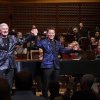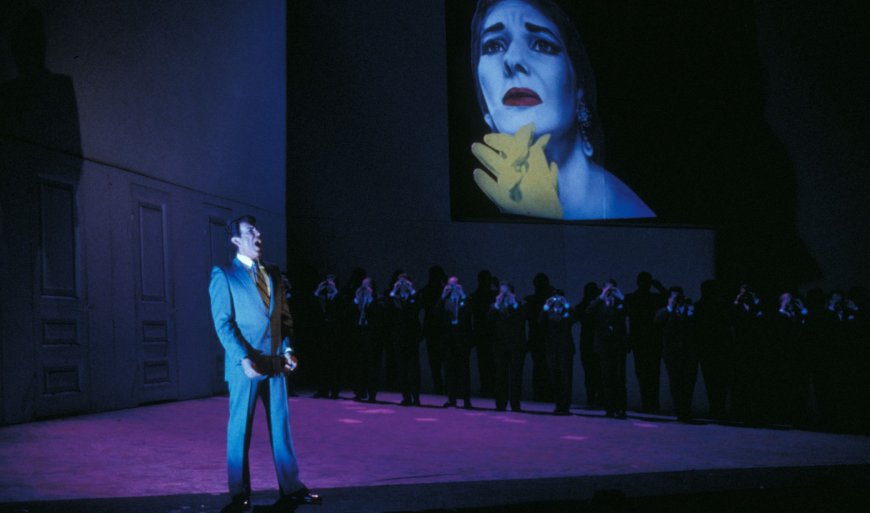
It’s fitting that Harvey Milk, the opera by composer Stewart Wallace and librettist Michael Korie, should find a second life in San Francisco.
Originally commissioned by David Gockley, former general director of Houston Grand Opera and later San Francisco Opera, it tells the story of the first openly gay elected official in California history, who served as a San Francisco supervisor for 11 months before he and Mayor George Moscone were assassinated in 1978. The definitive version of the opera premiered at San Francisco’s Orpheum Theatre in 1996, with a reworked score and libretto following performances in Texas and New York the previous year.
But at the end of that first gestation period, Harvey Milk proved unwieldy, and the opera was seldom staged. To keep the work in the repertoire turned out to be a task that would take yet another revision and a different Bay Area opera company.
Now, San Francisco’s Opera Parallèle is presenting the West Coast premiere of Harvey Milk Reimagined at the Blue Shield of California Theater at Yerba Buena Center for the Arts for just four performances, May 31 – June 7.
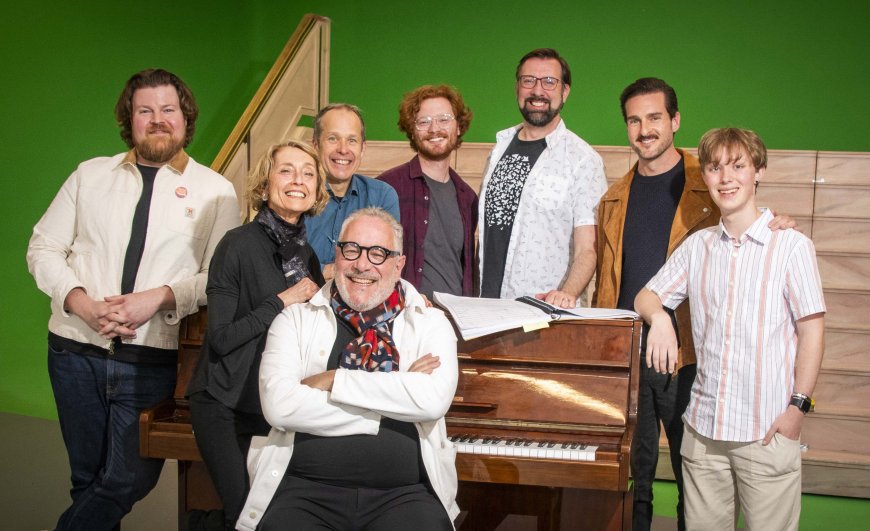
Opera Parallèle has been involved in the project since 2017, when Gockley introduced Wallace to the company’s creative team. The goal was to get a scaled-back version of the opera onstage in 2020, coinciding with the 90th anniversary of Milk’s birth, but the timeline was delayed by COVID.
For Creative Director Brian Staufenbiel and General and Artistic Director Nicole Paiement, the first step was a simpler structure. That meant paring down the opera from three acts to two and having far fewer characters.
“Nicole and Brian called me and said, ‘Can you take a look at those small roles?’” Wallace told SF Classical Voice after a rehearsal at Oasis Arts in the South of Market district off Fourth Street. “I think there were — I’m exaggerating — but it felt like thousands.
“I looked at the whole score, and I called them the next day and said, ‘They’re all gone.’ They were, I think, shocked, but it had the effect of clearing the brush.”
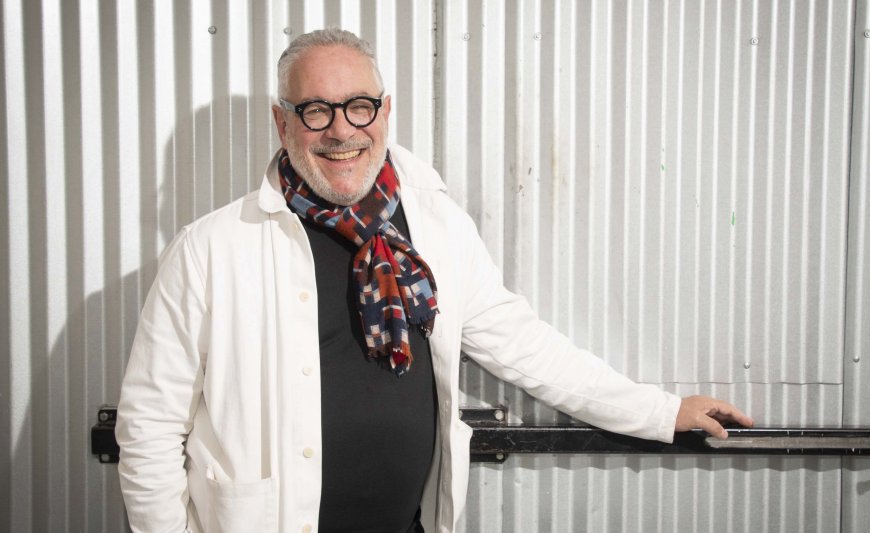
For his part, Staufenbiel wanted to streamline the production design for a smaller stage. He conceived a setup that can be reconfigured with projections as well as flying sculptures made out of doors that represent being in and out of the closet.
“The story takes you from the [Metropolitan] Opera to a park, a closet, the San Francisco Opera, City Hall, and bedrooms,” Staufenbiel explained. “We needed something that was very flexible.”
Baritone Michael Kelly, who sings the title role, believes that staging this opera and remembering Milk as a civil rights icon is particularly poignant now, given the current political climate.
“He’s the most important person, in my eyes, in terms of what we’re all benefiting from,” Kelly said of Milk and the LGBTQ community. “Also looking at the potential loss of those rights under [the current Trump] administration.”

Kelly sees connections not just to the present moment but also to his own history. The baritone — like Milk, a gay Jewish man from Long Island, New York — can draw on personal experience playing the role.
“This is something that I’ve done since I came out of the closet, exploring the history of our trajectory, our fight, our work,” he said.
While in San Francisco for rehearsals, Kelly’s been exploring the Castro, where Milk lived and owned a camera store. To better understand the character, he talked with activist Cleve Jones, who was mentored by Milk and worked in his City Hall office as an intern. Kelly recalled some of the questions he had about Milk: “Was he kind? Was he bitchy? Was he gracious?”
“He had a lot of insight into that and said, ‘There’s no easy way to talk about Harvey without saying the extraordinary person he was in supporting his friends,’” Kelly said of those conversations.
Jones’s friendship with Milk deepened during the last year of the supervisor’s life, which saw the successful defeat of the Briggs Initiative, a state proposition to ban lesbians and gay men from teaching in public schools.
“One of the things that struck me early on in my acquaintance with Harvey was just how many incarnations the guy went through before he found who he was supposed to be,” Jones told SFCV, highlighting how the popular image of Milk as a larger-than-life figure fails to fully capture the challenges and setbacks he endured.
“It wasn’t really until he started running for office that, I think, it all started to come together inside his head. Then when he won, it was as if suddenly he had found the costume that fit.”
Wallace considered a similar question when working on the opera — namely, how Milk transformed from a Barry Goldwater Republican and closeted stockbroker into a civil rights leader and gay icon.
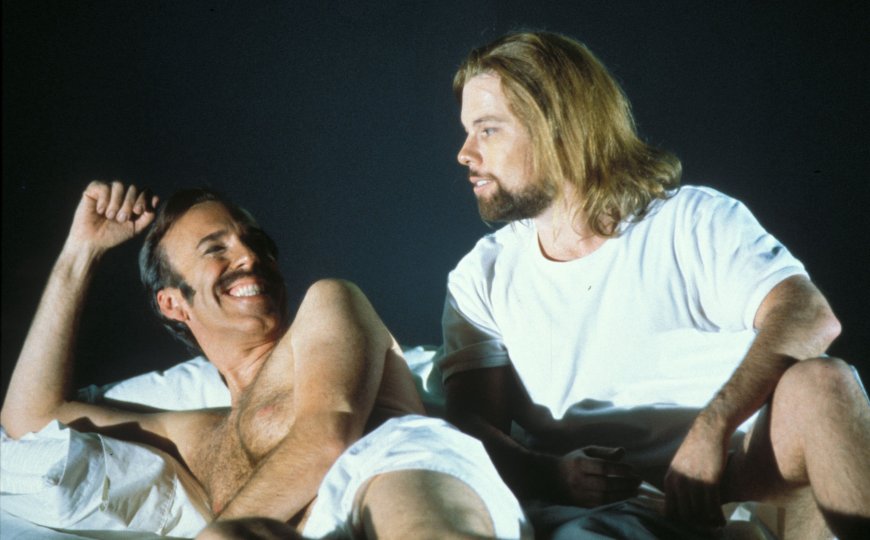
The composer found the answer in the life of his own father, who was of the same generation as Milk and was deeply affected by the mass slaughter of Jews during World War II. Wallace believes that it was those feelings that led Milk to fight for gay rights too.
In the opera, “we imagine that his consciousness and advocacy and vocal outspokenness about being a Jew post-Holocaust in the United States informed his growing consciousness as a gay man,” Wallace said. “There’s an aria in the first act where he sings, ‘My star is a pair of triangles. One pink. One yellow. They overlap, as I do.’ That was really the founding idea of the opera.”
Wallace wants more people to know this story, which led him to rewrite the opera, making it accessible for smaller companies to stage.
“I started from the blank page and went through the whole thing,” he said. “The plan is to see if we can inject Harvey Milk into the operatic repertoire.”
It certainly doesn’t hurt that Milk himself loved opera. Jones thinks that such a tribute would have delighted his friend.
“There’s no doubt Harvey would have enjoyed this,” he said.
This story was first published in Datebook in partnership with the San Francisco Chronicle.




